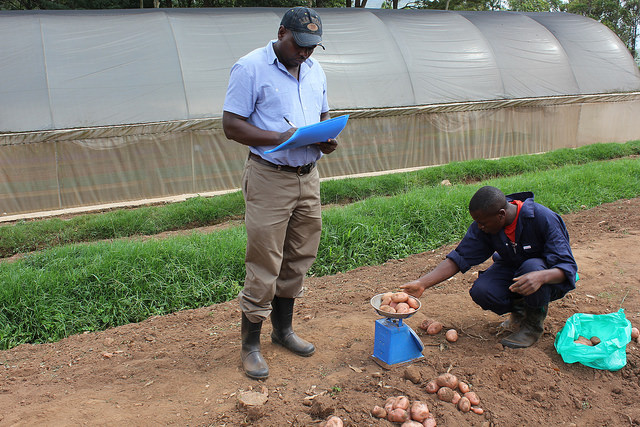Late blight remains one of the most devastating diseases for potato worldwide, costing farmers an estimated USD3 – 10 billion per year globally. Traditional breeding for resistant varieties takes years, and resistance can break down as the pathogen mutates when it encounters resistance genes, leaving farmers no options than using fungicides up to 15 times per season. Similarly, banana Xanthomonas wilt (BXW) is a growing threat to the livelihoods of small-scale farmers. Since its appearance in Uganda in the early 2000s, BXW has spread rapidly in the region, causing food insecurity and income loss. No resistant cultivars have been identified, and it can only be controlled through on-farm management practices.
In the face of these serious and persistent challenges to food security and livelihoods, RTB centers and national research partners have developed a biotech late blight-resistant potato with multi-gene resistance, and a BXW-resistant cooking banana variety for East Africa. Confined field trials have shown the crops to be very disease resistant, and otherwise identical to the original varieties.
In 2017, a RTB cross-crop initiative began to ensure the responsible management and regulation of biotech crops. Stewardship in plant biotechnology is the responsible management of a product from its inception through its ultimate use (learn more: http://www.excellencethroughstewardship.org). In addition, biotech crops need to be assessed for their safety to humans and animal health prior to release to the public for commercialization. Environmental risk assessments are also an essential part of regulatory decision-making for biotech crops. Consequently, stewardship plans along with risk assessments and experimental evidence are required to gain regulatory approval and for the responsible cultivation of these crops.
 Continue reading the story in the RTB 2017 Annual Report: From science to scaling.
Continue reading the story in the RTB 2017 Annual Report: From science to scaling.
